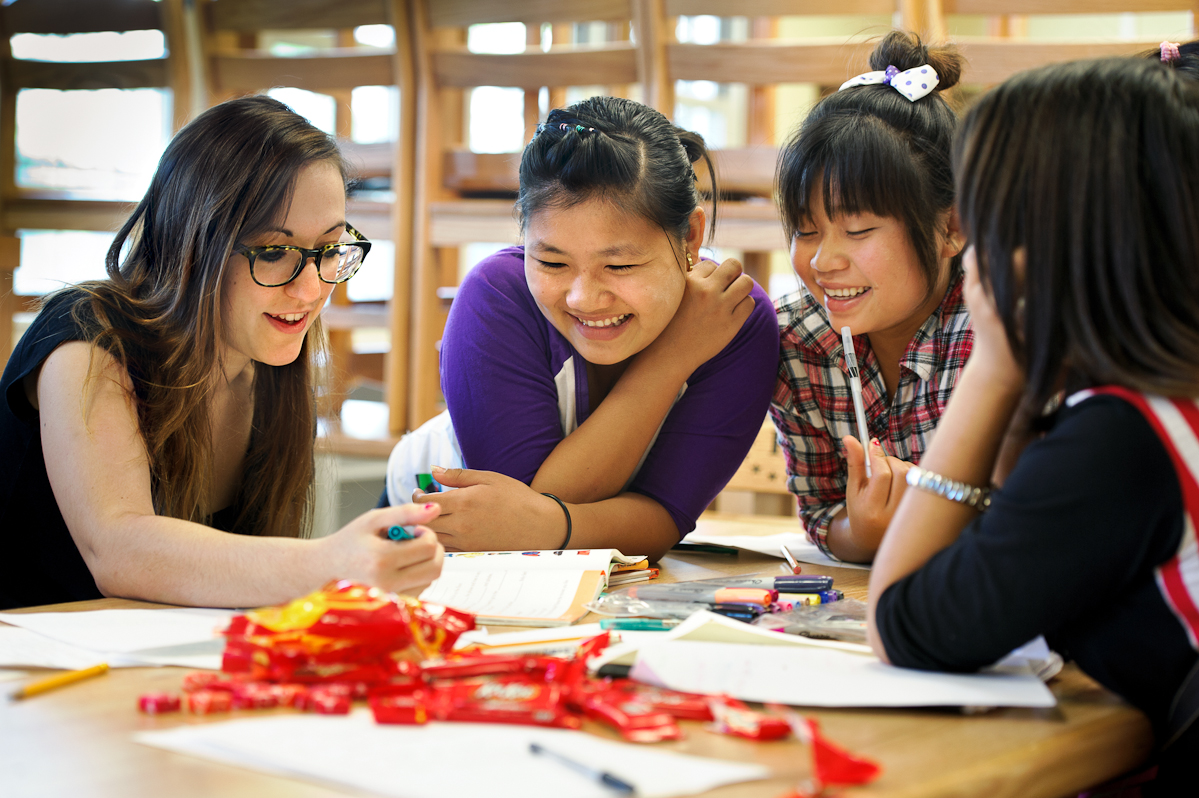
In the past 30 years, Utica has become a major center for refugees. In fact, it has the fourth highest concentration of refugees of all cities in the United States. Many of these immigrants struggle to adjust to American culture and language. Through a Kirkland Summer Associate project, Maggie Haag ’15 is trying new ways to use technology to teach refugees English and help them to understand American culture. Her project, supervised by Professor of Anthropology Bonnie Urciuoli, is titled, “The Road to Literacy: An Exploration of Promoting Literacy in Uniquely Mediated Ways.”
In her research, Haag has learned about ways to teach language that go far beyond the standard workbook. For example, she studied a virtual online game in which students create “language learning avatars” and can chat with other users. She explained, “Students don’t feel like they’re the ones speaking English, so they’re not as worried about making mistakes.” Haag has learned that, particularly with refugee students, helping them to feel comfortable can be a major challenge. They are adjusting to an entire new place and culture, in addition to the language, and Haag believes that technology can be a very useful tool for helping to make those adjustments. She noticed, “If you give them something fun, they’ll forget about how scary it is to be using a new language.”
Haag is testing these ideas by tutoring a woman from Sudan and a group of six teenagers from Thailand. Although a lack of resources limits the amount of technology she can use, Haag has been incorporating technology as a teaching tool when possible. For instance, she includes clips of the TV show Glee in her lessons with the Thai students. She noted that it’s useful because it’s fun and engaging. All six students also have Facebook accounts, which they sometimes use to chat with her in English. Using social media and pop culture is not only entertaining, but helps the students use English in a more natural environment and integrate more into American culture. Haag has appreciated seeing her students benefit from her teaching, remarking, “At first they were very shy. By now they’re trying to ask me questions and talk with me.” She continued, “It’s been cool to see the accomplishments they’ve made so far.”
Next year Haag plans to continue working with all the people she is tutoring. She hopes that she will be able to bring them to Hamilton, where they can take advantage of the campus’s computers and other resources. As she incorporates more technology, she can assess how beneficial it really is. “In the very least,” she commented, “It makes them a lot more interested than going through a workbook.”
Haag is a graduate of Clinton High School.
